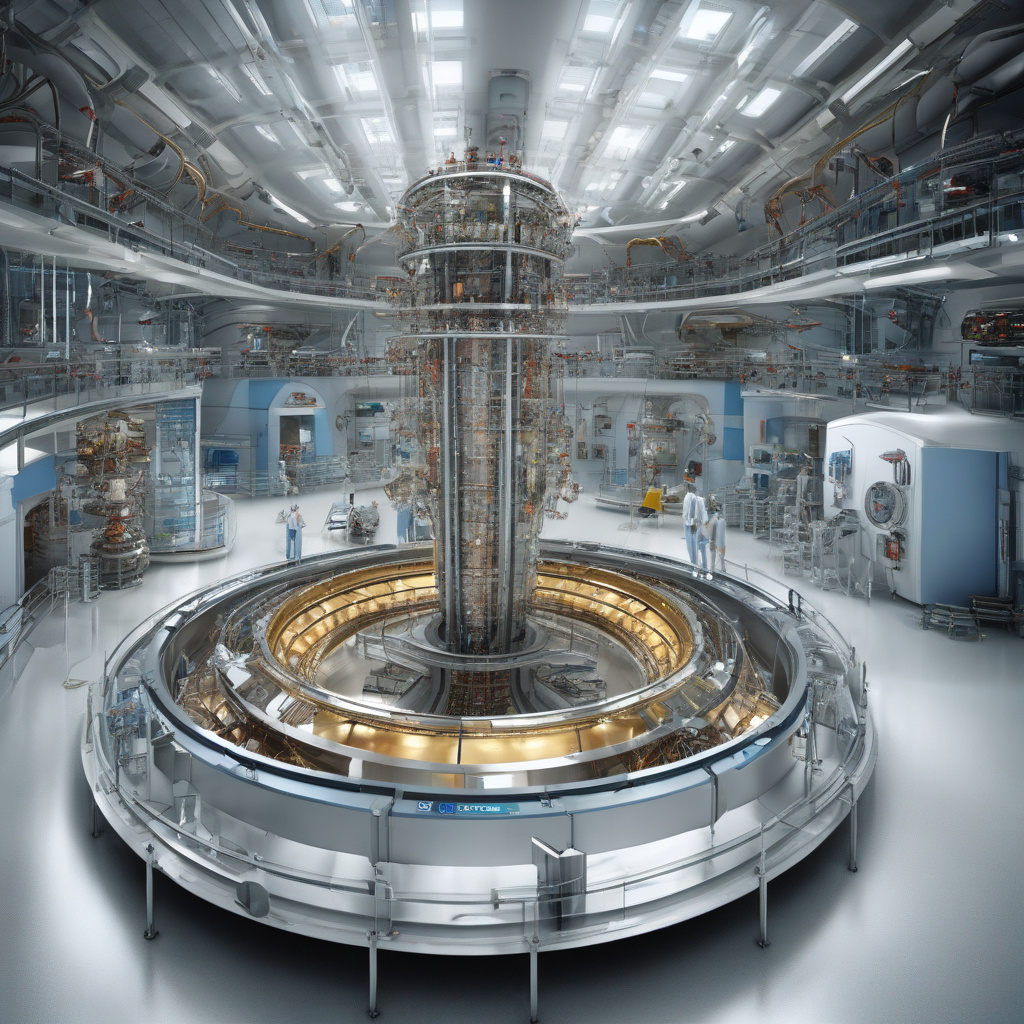Inside the ALICE Upgrades at AGH University of Krakow – Past, Present, and Future
AGH University of Krakow, a renowned hub for scientific research and innovation, continues to make strides in the field of particle physics with its involvement in the ALICE experiment. The university recently shared an update on the ongoing upgrades to the ALICE experiment, highlighting past successes, current advancements, and future prospects for this groundbreaking project.
The ALICE (A Large Ion Collider Experiment) is a major international collaboration aimed at studying the properties of quark-gluon plasma, a state of matter that is believed to have existed microseconds after the Big Bang. AGH University of Krakow has been a key player in the ALICE experiment, contributing to its success and advancements over the years.
One of the remarkable aspects of the ALICE experiment is its ability to recreate and study the conditions of the early universe by colliding heavy ions at extremely high energies. This has led to significant discoveries in the field of nuclear physics and has provided valuable insights into the fundamental forces that govern the universe.
In the past, the ALICE experiment at AGH University of Krakow has achieved several milestones, including the discovery of a new state of matter called the quark-gluon plasma. This groundbreaking discovery has opened up new avenues for research and has deepened our understanding of the evolution of the universe.
Looking towards the present, AGH University of Krakow is actively involved in upgrading the ALICE experiment to further enhance its capabilities and performance. These upgrades aim to increase the sensitivity of the detector, improve data collection efficiency, and enable the study of rare particles with unprecedented precision.
The recent update from AGH University of Krakow sheds light on the progress made in the ALICE upgrades, showcasing the university’s commitment to pushing the boundaries of scientific exploration. By investing in state-of-the-art technologies and collaborating with experts from around the world, AGH University of Krakow is at the forefront of particle physics research.
As we gaze into the future, the possibilities that lie ahead for the ALICE experiment are both exciting and promising. With the upgraded capabilities of the detector, researchers hope to unravel more mysteries of the early universe, explore the dynamics of quark-gluon plasma in greater detail, and perhaps discover new phenomena that challenge our current understanding of physics.
In conclusion, the ALICE experiment at AGH University of Krakow stands as a testament to human curiosity, ingenuity, and the relentless pursuit of knowledge. From its past achievements to its present upgrades and future aspirations, the ALICE experiment continues to inspire scientists and researchers to push the boundaries of what is known and explore the mysteries of the universe.
The future of particle physics is indeed bright, and AGH University of Krakow is poised to play a significant role in shaping our understanding of the cosmos through its contributions to the ALICE experiment.
#AGHUniversity, #ALICEexperiment, #ParticlePhysics, #ScientificResearch, #InnovationNewsNetwork










